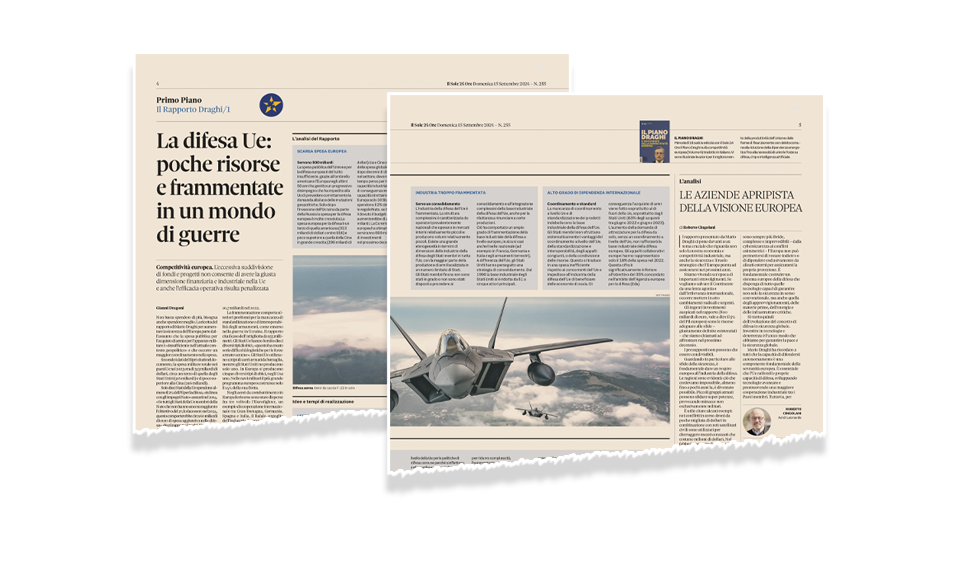European military spending is insufficient and fragmented, with only ten EU states meeting the NATO target of 2% of GDP for Defence, and is less focused on innovation than the US. This is what emerges from the Draghi report “The future of European competitiveness”, which emphasises the need for greater coordination in Defence spending and industry consolidation. The scenario is described in the article “EU Defence: few and fragmented resources in a world of wars”, which highlights the joint venture between Leonardo and Rheinmetall to produce future heavy tanks and light armoured vehicles for the Italian Army as a sign of greater integration and cooperation at European level.
The need for significant investment in Defence and Security by the EU is also made a priority by the advent of digitalisation and low-cost technologies, which have changed the landscape of conflicts, making them asymmetrical. According to Roberto Cingolani, “European Defence is called upon to evolve towards global security, including the protection of critical infrastructure and supplies. European industries have a huge social responsibility, because they can transform the various forms of synergies into constructive pressure elements towards States and politics.”
Companies must thus become forerunners of a truly community-based industrial vision, thinking jointly and making bold proposals. In this context, Cingolani emphasises Leonardo's effort “to build international strategic partnerships, contributing to the consolidation of European security poles. The aim is to pool technological capabilities to build a critical mass in Europe. And also, in the future, to ensure freedom, prosperity and democracy for the next generations.”
The need to strengthen competitiveness through more investment also affects the Space sector, where European public funding is significantly lower than in the US (EUR 13.87 billion invested by the EU in 2023 compared to EUR 73 billion in the US). The Draghi report emphasises the urgency of increasing investment to avoid strategic dependence and maintain competitiveness. As explained in the article “More investment so as not to give in to Elon Musk”, this common goal could encourage collaboration between the major European players - including Leonardo, which owns 33% of Thales Alenia Space - in a sector, such as the Space Economy, whose value amounts to $630 billion in 2023 and could reach $1.8 trillion in 2035.


